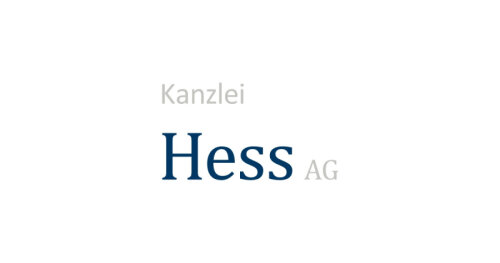Best General Litigation Lawyers in Switzerland
Share your needs with us, get contacted by law firms.
Free. Takes 2 min.
Or refine your search by selecting a city:
List of the best lawyers in Switzerland
About Litigation Law in Switzerland
Litigation in Switzerland refers to the process of resolving disputes through the judicial system. Swiss litigation law is based on a civil law system, where legal proceedings are predominantly handled in writing, although oral hearings also play an important role. The Swiss legal system is known for its efficiency, neutrality, and impartiality. Litigation proceedings can occur at cantonal or federal levels, depending on the subject matter and jurisdiction. English, French, German, and Italian are the official languages used in litigation, depending on the canton.
Why You May Need a Lawyer
There are many instances where one may require legal assistance in litigation:
- Contractual disputes, including breaches and interpretations.
- Family law issues such as divorce or custody battles.
- Employment law conflicts, including wrongful termination or workplace discrimination.
- Commercial litigation involving business disputes or corporate governance issues.
- Property disputes, including boundary issues or landlord-tenant disagreements.
- Intellectual property disputes involving patents, trademarks, or copyrights.
- Debt collection and enforcement of claims.
In these situations, a lawyer can offer expertise in navigating the complexities of the legal system, provide strategic advice, and represent your interests in court.
Local Laws Overview
Switzerland’s litigation processes are governed primarily by the Swiss Civil Procedure Code (CPC), which lays out the framework for civil litigation proceedings. Key aspects include:
- Jurisdiction: The Swiss court system is divided into federal and cantonal courts. Jurisdiction is determined by the nature of the case and the involved parties.
- Statute of Limitations: Litigation must be initiated within certain timeframes that vary based on the type of claim.
- Evidence: Swiss courts typically rely on documentary evidence. The burden of proof usually lies with the party making the claim.
- Costs and Fees: The losing party generally bears the court costs and legal fees, although Swiss law also provides mechanisms for people lacking financial resources.
- Mediation: Cantons may require mediation or conciliation as a preliminary step to litigation in certain disputes.
Frequently Asked Questions
How long does a litigation process typically take in Switzerland?
The duration can vary widely depending on the complexity of the case, the court's schedule, and the willingness of parties to settle. It can range from several months to several years.
Can court proceedings be held in English?
While English is not an official language in Swiss courts, parties may agree to conduct proceedings in English subject to the court's consent. However, judgments will typically be rendered in the local official language.
Is it common to settle disputes out of court in Switzerland?
Yes, many parties choose to settle out of court to avoid the costs and time associated with litigation. Mediation and arbitration are common alternatives.
What costs should I expect in a litigation case?
Costs include court fees, attorney fees, and possibly expert witness fees. The total costs will depend on the complexity of the case and the time required to resolve it.
Is there a risk of adverse cost orders?
Yes, the losing party is typically required to pay the court costs and the legal fees of the winning party.
Do I need a lawyer to represent me in Swiss courts?
While individuals can represent themselves, it is generally advisable to hire a lawyer due to the complexity of legal proceedings and the need for specialized legal knowledge.
What is the role of Cantonal vs. Federal courts in Switzerland?
Cantonal courts handle most litigation cases as a first instance. Federal courts handle specialized areas such as patent law and appeals from cantonal court decisions.
What should I do if I can't afford a lawyer?
Switzerland provides for legal aid for individuals who cannot afford legal representation, subject to certain conditions and merit-based assessments.
Can I appeal a court decision?
Yes, decisions can typically be appealed to a higher court if there are grounds for appeal, such as procedural errors or misinterpretations of law.
How do I enforce a foreign judgment in Switzerland?
Recognition and enforcement of foreign judgments in Switzerland is governed by international treaties and Swiss Private International Law.
Additional Resources
There are several resources available to those seeking legal guidance in Switzerland:
- Swiss Federal Office of Justice: Provides an overview of Swiss law and access to legal resources.
- Cantonal Bar Associations: Offer lists of licensed attorneys who can represent you in legal matters.
- Swiss Arbitration Association: For those interested in alternative dispute resolutions.
- Pro Bono Clinics: Offer free legal advice for those who qualify based on income.
Next Steps
If you require legal assistance in litigation, consider the following steps:
- Identify the nature and specifics of your legal issue to determine the type of legal expert you need.
- Consult the Cantonal Bar Association to find a qualified lawyer with experience in your area of litigation.
- Schedule an initial consultation to discuss your case, explore your options, and develop a legal strategy.
- Discuss fees and payment structures with your lawyer to understand all costs involved.
- Collect and organize all relevant documents and evidence to facilitate an efficient legal process.
With these steps, you'll be well on your way to effectively addressing your legal needs in the field of litigation in Switzerland.
Lawzana helps you find the best lawyers and law firms in Switzerland through a curated and pre-screened list of qualified legal professionals. Our platform offers rankings and detailed profiles of attorneys and law firms, allowing you to compare based on practice areas, including General Litigation, experience, and client feedback.
Each profile includes a description of the firm's areas of practice, client reviews, team members and partners, year of establishment, spoken languages, office locations, contact information, social media presence, and any published articles or resources. Most firms on our platform speak English and are experienced in both local and international legal matters.
Get a quote from top-rated law firms in Switzerland — quickly, securely, and without unnecessary hassle.
Disclaimer:
The information provided on this page is for general informational purposes only and does not constitute legal advice. While we strive to ensure the accuracy and relevance of the content, legal information may change over time, and interpretations of the law can vary. You should always consult with a qualified legal professional for advice specific to your situation.
We disclaim all liability for actions taken or not taken based on the content of this page. If you believe any information is incorrect or outdated, please contact us, and we will review and update it where appropriate.
Browse general litigation law firms by city in Switzerland
Refine your search by selecting a city.















